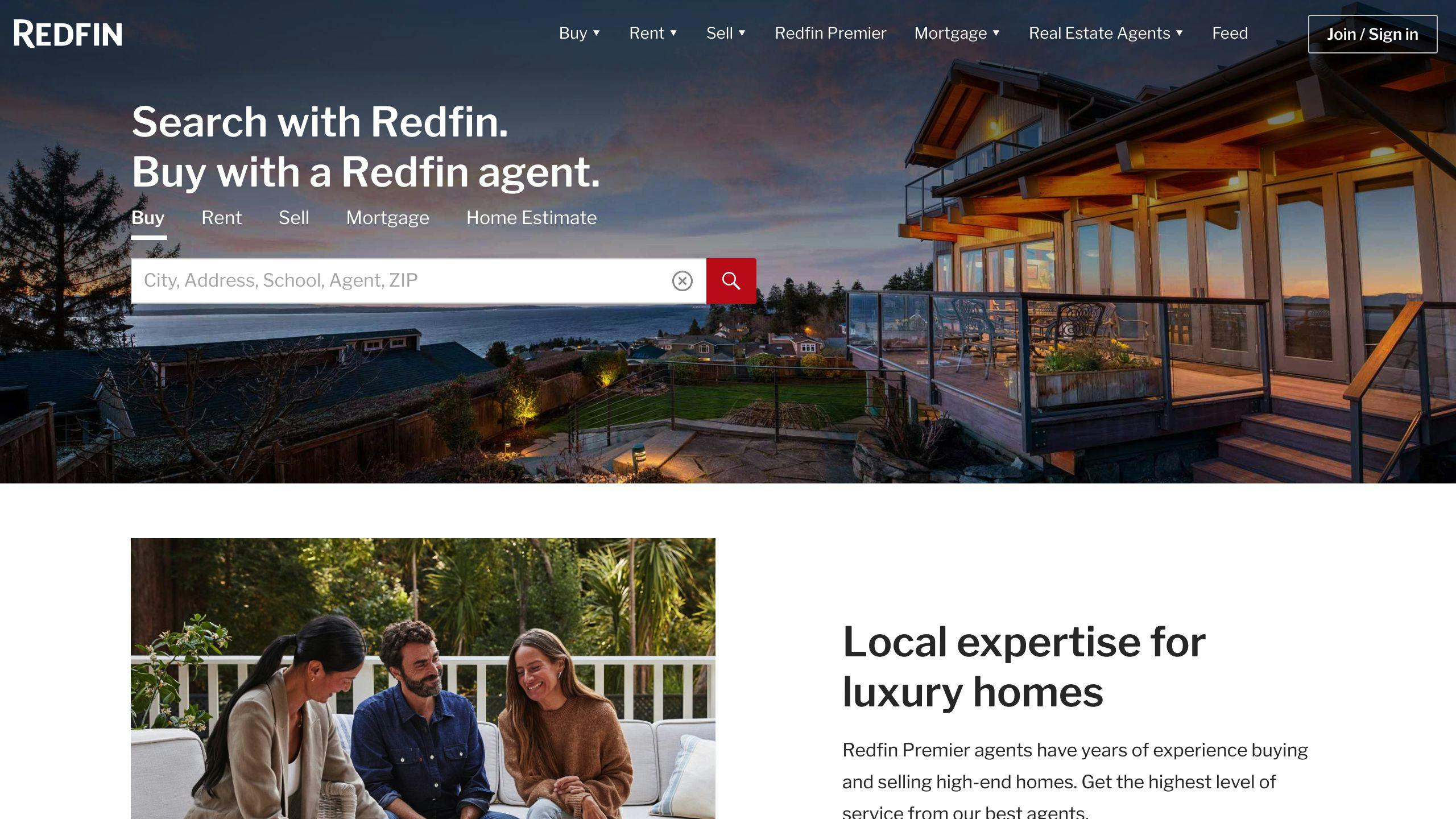Real estate chatbots are AI-powered virtual assistants that provide 24/7 availability, instant responses, and personalized interactions for customers. They automate routine tasks, answer FAQs, provide property details, offer virtual tours, assist with mortgage calculations, and more. By integrating chatbots, real estate businesses can:
-
Increase Lead Generation and Sales
- Qualify leads and gather preferences
- Focus on high-quality leads for better conversions
-
Improve Client Engagement and Loyalty
- Maintain ongoing communication
- Provide timely updates and responses
-
Reduce Costs
- Automate customer service and administrative tasks
- Optimize operational efficiency
-
Gain Customer Insights
- Analyze user interactions and preferences
- Identify trends and pain points
-
Offer Timely Query Responses
- Handle multiple inquiries simultaneously
- Deliver instant responses, building trust
Here are 9 key use cases for real estate chatbots:
| Use Case | Description |
|---|---|
| Lead Qualification & Follow-up | Engage potential buyers/sellers, gather preferences |
| Scheduling with Calendar Integration | Allow clients to schedule property viewings/appointments |
| Instant Property Details | Provide specifications, pricing, availability |
| Virtual Property Tours | Assist with setting up remote property tours |
| Post-Tour Communication | Automate feedback collection, follow-up communication |
| Mortgage Calculations & Advice | Aid with mortgage calculations, financial advice |
| Real Estate Market Insights | Analyze and report on market trends |
| 24/7 Customer Support | Offer round-the-clock support, enhancing satisfaction |
| Task Automation | Enable agents to focus on high-value tasks |
To successfully implement chatbots, real estate professionals should choose the right solution, customize interactions, integrate with existing systems, monitor performance, and scale functionality as needed.
Related video from YouTube
Real Estate Chatbot Applications
Real estate chatbots have numerous practical applications that can significantly enhance customer service, operational efficiency, and revenue growth. Here are some of the most impactful use cases:
Lead Qualification and Follow-up
| Task | Description |
|---|---|
| Engage with potential buyers and sellers | Qualify leads and gather essential information about their needs and preferences |
| Focus on high-quality leads | Increase the chances of successful conversions |
Scheduling with Calendar Integration
| Task | Description |
|---|---|
| Integrate with calendar systems | Allow clients to schedule property viewings and appointments with real estate agents |
| Streamline the process | Reduce the likelihood of miscommunication and increase agent productivity |
Instant Property Details
| Task | Description |
|---|---|
| Provide immediate property information | Include specifications, pricing, and availability |
| Enable informed decisions | Reduce the time spent on property searches |
Virtual Property Tours
| Task | Description |
|---|---|
| Assist in setting up virtual property tours | Allow clients to explore properties remotely |
| Increase engagement | Reduce the need for physical property visits |
Post-Tour Communication
| Task | Description |
|---|---|
| Automate feedback collection | Ensure timely updates and responses to client queries |
| Follow-up communication | Enhance client satisfaction and loyalty |
Mortgage Calculations and Advice
| Task | Description |
|---|---|
| Aid customers with mortgage calculations | Provide financial advice related to property purchases |
| Inform investment decisions | Help clients make informed decisions about their investments |
Real Estate Market Insights
| Task | Description |
|---|---|
| Analyze and report on market trends | Provide valuable insights that inform business strategies |
| Enhance customer engagement | Improve customer satisfaction and loyalty |
24/7 Customer Support
| Task | Description |
|---|---|
| Offer 24/7 customer support | Ensure immediate responses to client inquiries and concerns |
| Enhance customer satisfaction | Increase customer loyalty |
Task Automation for Efficiency
| Task | Description |
|---|---|
| Automate routine tasks | Enable agents to focus on high-value tasks, such as building relationships and closing deals |
| Improve operational efficiency | Enhance revenue growth |
These practical applications of chatbots in real estate demonstrate their potential to transform the industry, enhancing customer experiences, improving operational efficiency, and driving revenue growth.
Benefits of Real Estate Chatbots
Real estate chatbots offer numerous advantages to businesses in the industry. Here are some of the most significant benefits of integrating chatbots into your real estate operations:
Increased Lead Generation and Sales
| Benefit | Description |
|---|---|
| Qualify leads | Engage potential buyers and sellers, gathering essential information about their needs and preferences |
| Focus on high-quality leads | Increase the chances of successful conversions |
Chatbots provide instant responses to inquiries, qualifying leads and gathering essential information. This enables real estate agents to focus on high-quality leads, increasing the chances of successful conversions.
Improved Client Engagement and Loyalty
Chatbots play a crucial role in maintaining ongoing communication with clients, fostering loyalty and retention. By automating routine tasks and providing personalized responses, chatbots ensure that clients receive timely updates and responses to their queries.
Cost Savings
| Cost Savings | Description |
|---|---|
| Reduce labor costs | Automate customer service and administrative tasks |
| Reduce training costs | Focus on high-value tasks, such as building relationships and closing deals |
| Reduce infrastructure costs | Optimize operational efficiency |
Integrating chatbots into your real estate operations can result in significant cost savings. By automating customer service and administrative tasks, chatbots reduce the workload on human agents, allowing them to focus on high-value tasks.
Customer Insights
Chatbots provide valuable data analysis capabilities, offering actionable insights into customer preferences and behavior. By analyzing user interactions, chatbots help real estate businesses identify trends, preferences, and pain points.
Timely Query Responses
Chatbots deliver instant responses to client inquiries, which is essential in building trust and enhancing client satisfaction. By providing timely responses, chatbots demonstrate a commitment to customer service, setting your business apart from competitors.
These benefits demonstrate the transformative potential of chatbots in the real estate industry, enhancing customer experiences, improving operational efficiency, and driving revenue growth.
Implementing Real Estate Chatbots
To successfully integrate chatbots into your real estate business, follow these key steps:
Choosing a Chatbot Solution
Select a chatbot platform that meets your business needs. Consider the following factors:
| Factor | Description |
|---|---|
| Features | Ensure the platform offers features like natural language processing, lead capture, appointment scheduling, and property recommendation capabilities. |
| Ease of Use | Look for user-friendly interfaces and intuitive chatbot builders that simplify customization and management. |
| Integration | Prioritize platforms that seamlessly integrate with your existing CRM, property databases, and other real estate tools. |
| Scalability | Consider solutions that can scale as your business grows, supporting increased customer interactions and advanced functionality. |
Customizing Chatbot Interactions
Tailor chatbot dialogues to align with your brand's tone and effectively address your target audience:
| Customization | Description |
|---|---|
| Branding | Incorporate your brand's visual elements, such as logos and color schemes, to create a cohesive experience. |
| Tone and Personality | Define the chatbot's personality and communication style to resonate with your target audience. |
| Conversational Flow | Design intuitive conversation flows that anticipate user queries and provide relevant information or actions. |
Integrating with Existing Systems
Seamlessly integrate chatbots with your current real estate systems to ensure accurate and up-to-date information exchange:
| System | Description |
|---|---|
| CRM Systems | Sync customer data, lead information, and interaction histories for a comprehensive view of client relationships. |
| Property Listing Databases | Enable chatbots to access and display accurate property details, availability, and pricing. |
| Calendar Tools | Integrate with scheduling tools to facilitate appointment booking and property viewing management. |
Monitoring and Optimizing Chatbots
Continuously monitor and optimize chatbot performance to maintain effectiveness and improve customer experiences:
| Task | Description |
|---|---|
| Analytics and Reporting | Leverage analytics tools to track chatbot performance metrics, such as engagement rates, lead conversions, and customer satisfaction. |
| User Feedback | Collect and analyze user feedback to identify areas for improvement, such as enhancing conversational flows or addressing common pain points. |
| Ongoing Training | Regularly train and update chatbots with new data and scenarios to enhance their knowledge and capabilities. |
Scaling Chatbot Functionality
As your real estate business grows, scale chatbot services to accommodate increasing customer demands:
| Scaling | Description |
|---|---|
| Multi-language Support | Expand chatbot capabilities to support multiple languages, catering to diverse customer bases. |
| Advanced AI Integration | Integrate advanced AI technologies, such as natural language understanding and machine learning, to enhance chatbot intelligence and personalization. |
| Omnichannel Deployment | Deploy chatbots across multiple channels, such as websites, mobile apps, and messaging platforms, for a seamless customer experience. |
By following these steps, real estate businesses can effectively implement chatbots, streamline operations, and deliver exceptional customer experiences that drive growth and success.
sbb-itb-b2c5cf4
Real Estate Chatbot Case Studies
Real estate companies have successfully implemented chatbots to improve customer experiences, streamline operations, and drive business growth. Here are some real-world examples:
Century 21

Century 21 introduced "Sofia," a virtual assistant chatbot, to guide potential buyers and renters through property searches, schedule appointments, and connect them with knowledgeable agents.
Key Achievements:
| Achievement | Description |
|---|---|
| Improved lead capture and qualification | 25% increase in conversion rates |
| Reduced response times | Higher satisfaction scores |
| Streamlined appointment scheduling | Freed up agent time for more productive tasks |
Compass

Compass implemented "Compass Concierge," a chatbot that offers 24/7 support to buyers and sellers. This virtual assistant answers common inquiries, assists with scheduling property tours, and facilitates connections with knowledgeable agents.
Key Achievements:
| Achievement | Description |
|---|---|
| Increased customer engagement | 24/7 support and instant responses |
| Reduced agent workload | Automated routine tasks and queries |
| Gained valuable customer insights | Through chatbot interactions |
Redfin

Redfin leveraged chatbots to enhance their online property search experience. Their chatbot guides users through the process of finding their dream home, providing personalized recommendations based on preferences and search criteria.
Key Achievements:
| Achievement | Description |
|---|---|
| Streamlined property search | 30% increase in user satisfaction |
| Improved lead generation | Captured user data and preferences |
| Reduced search time | Users found desired properties faster |
These case studies demonstrate the potential of chatbots in the real estate industry, highlighting their ability to improve customer experiences, streamline operations, and drive business growth.
Overcoming Chatbot Implementation Challenges
Managing Complex Queries
When dealing with intricate questions, consider a hybrid approach where the chatbot escalates complex queries to human agents. This ensures that users receive accurate and timely responses. Continuously train the chatbot with conversational data to improve its understanding of nuanced queries over time.
Data Privacy and Security
Protecting client data is crucial in the real estate industry. Ensure chatbots adhere to strict data protection protocols, such as encryption and access controls. Anonymize data when possible to maintain client privacy while still enabling valuable insights.
Personalizing at Scale
To maintain a personalized touch as chatbot adoption grows, leverage user data and preferences to tailor responses and recommendations. Incorporate contextual cues, such as location and search history, to provide relevant information. Continuously refine the chatbot's conversational flow and language based on user feedback.
Troubleshooting Technical Issues
Despite testing, technical issues may arise. Establish clear processes for monitoring chatbot performance and identifying issues promptly. Implement logging and error reporting mechanisms to quickly diagnose and resolve problems. Regularly update the chatbot with the latest security patches and bug fixes.
| Challenge | Solution |
|---|---|
| Managing complex queries | Hybrid approach with human agents, continuous training |
| Data privacy and security | Encryption, access controls, anonymization |
| Personalizing at scale | User data, contextual cues, continuous refinement |
| Troubleshooting technical issues | Monitoring, logging, error reporting, updates |
By addressing these common challenges, real estate businesses can ensure a seamless and effective chatbot implementation that enhances customer experiences and drives business growth.
The Future of Real Estate Chatbots
Key Advantages Recap
Real estate chatbots offer several key benefits:
| Advantage | Description |
|---|---|
| Increased Lead Generation and Sales | Engage website visitors, collect preferences, and provide personalized recommendations |
| Improved Client Engagement and Loyalty | 24/7 availability, instant responses, and personalized interactions |
| Cost Savings | Automate routine tasks and reduce customer service teams |
| Customer Insights | Analyze user interactions and preferences for data-driven decision-making |
| Timely Query Responses | Handle multiple queries simultaneously for prompt responses |
Next Steps for Real Estate Professionals
To leverage the power of chatbots, professionals should:
1. Evaluate Chatbot Solutions: Assess various chatbot platforms and solutions to find the best fit.
2. Define Use Cases: Identify areas where chatbots can enhance operations, such as lead generation or property search assistance.
3. Customize and Integrate: Tailor the chatbot's interactions and tone to match your brand's voice and integrate it with existing systems.
4. Train and Educate: Ensure your team understands the chatbot's capabilities and limitations.
5. Monitor and Optimize: Continuously monitor the chatbot's performance and gather user feedback for improvements.
6. Stay Up-to-Date: Stay informed about the latest chatbot advancements to provide cutting-edge experiences.
By taking these steps, real estate professionals can harness the full potential of chatbot technology, streamline operations, and deliver exceptional customer experiences that drive business growth.
FAQs
How to use chatbot for real estate marketing?
To effectively use a chatbot for real estate marketing, focus on the following key features:
| Feature | Description |
|---|---|
| Conversational abilities | Engage users in natural, informative dialogues |
| Integration with listing databases | Provide up-to-date property information |
| Appointment scheduling capabilities | Facilitate efficient viewing and consultation arrangements |
By incorporating these features, real estate professionals can create a seamless and personalized experience for potential clients, ultimately driving lead generation and sales.


